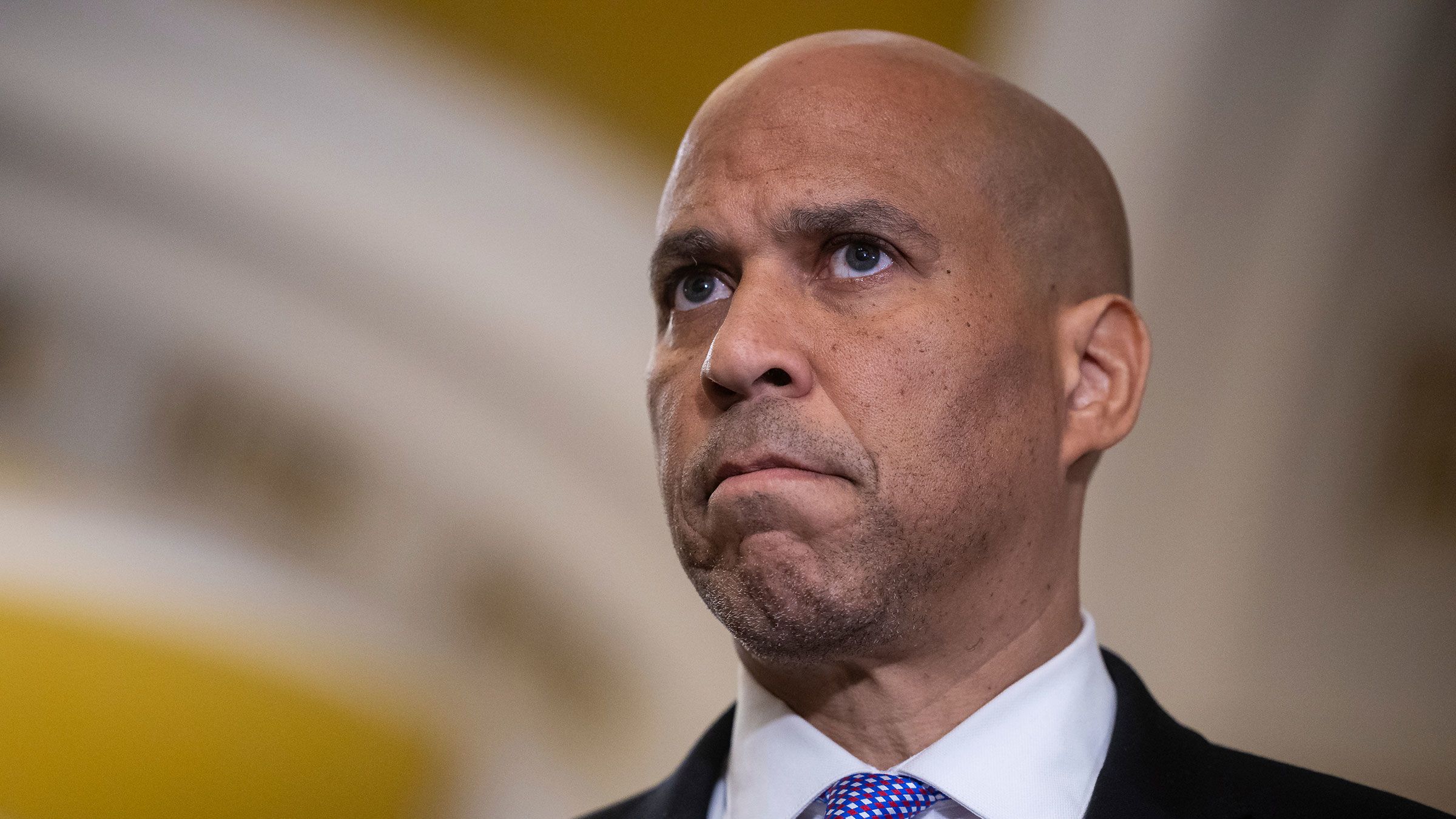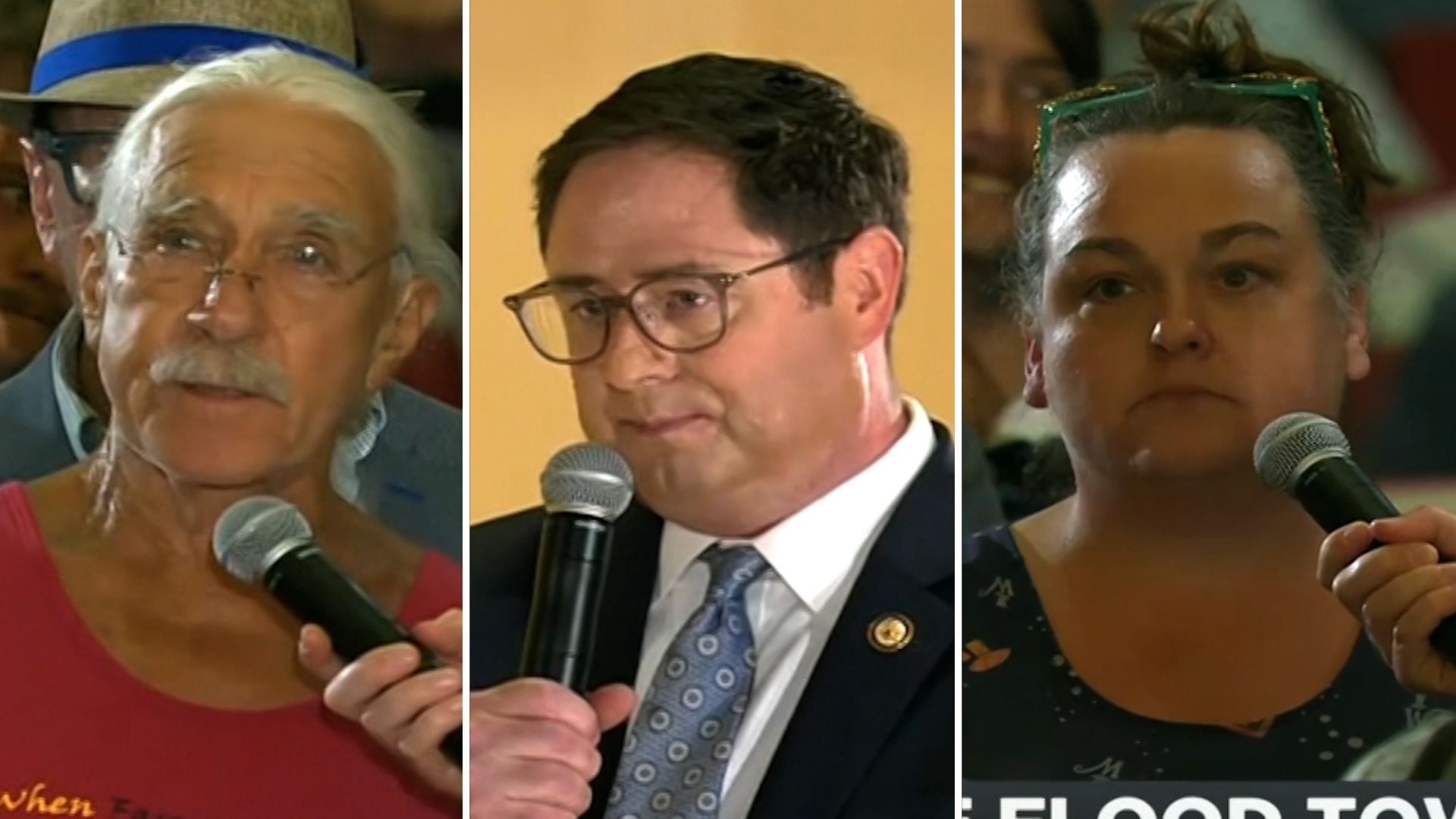
Trump administration to reinstall two Confederate statues
Entities mentioned:
- Trump administration: Control, Legacy, Pride
- Donald Trump: Power, Legacy, Influence
- US National Park Service: Duty, Obligation, Professional pride
- Pete Hegseth: Loyalty, Righteousness, Influence
- Glenn Youngkin: Pride, Legacy, Influence
- Biden administration: Justice, Unity, Righteousness
- Eleanor Holmes Norton: Justice, Moral outrage, Determination
Article Assessment:
Credibility Score: 75/100
Bias Rating: 55/100 (Center)
Sentiment Score: 35/100
Authoritarianism Risk: 65/100 (Authoritarian Tendencies)
Bias Analysis:
The article presents multiple viewpoints, including those supporting and opposing the reinstatement of Confederate monuments. However, there's a slight lean towards critical perspectives of the action, particularly in the detailed explanation of the monuments' controversial aspects.
Key metric: Social Cohesion
As a social scientist, I analyze that this article highlights a significant regression in social progress and national unity. The reinstatement of Confederate monuments, particularly in the aftermath of widespread protests against racial injustice, signals a deliberate attempt to reassert narratives that many view as supportive of systemic racism. This action is likely to exacerbate existing social tensions, potentially leading to decreased trust in government institutions and increased polarization among different demographic groups. The justification of these actions through executive orders and reinterpretations of historical narratives suggests a concerning trend towards using governmental power to shape public memory and national identity in ways that may marginalize certain communities. This could have long-term implications for social cohesion, civic engagement, and the collective understanding of American history.

Top Trump officials will discuss Epstein strategy at Wednesday dinner hosted by Vance
Entities mentioned:
- Trump administration: Control, Self-preservation, Unity
- Todd Blanche: Duty, Professional pride, Justice
- Ghislaine Maxwell: Self-preservation, Fear, Loyalty
- Jeffrey Epstein: Power, Greed, Control
- Donald Trump: Self-preservation, Power, Control
- House Oversight Committee: Justice, Duty, Moral outrage
Article Assessment:
Credibility Score: 75/100
Bias Rating: 45/100 (Center)
Sentiment Score: 35/100
Authoritarianism Risk: 40/100 (Generally Democratic)
Bias Analysis:
The article presents a balanced view, including perspectives from various sides and citing multiple sources. While it focuses on Trump administration actions, it also includes opposition viewpoints and contextual information, maintaining a generally neutral stance.
Key metric: Government Transparency Index
As a social scientist, I analyze that this article highlights the complex interplay between government transparency, political strategy, and public perception in the handling of high-profile criminal cases. The Trump administration's deliberation over releasing sensitive information related to the Epstein case demonstrates a tension between transparency demands and potential political ramifications. This situation could significantly impact the Government Transparency Index, as the decision to release or withhold information will be seen as a benchmark for the administration's commitment to openness. The involvement of high-ranking officials in strategizing the response underscores the political sensitivity of the issue. The House Oversight Committee's subpoenas further emphasize the broader governmental push for transparency, potentially forcing the administration's hand. This case serves as a litmus test for how the government balances public interest, legal considerations, and political strategy in high-stakes situations.

Pro-Israel Democrats try breaking with Netanyahu to stop party’s shift amid Gaza crisis
Entities mentioned:
- Benjamin Netanyahu: Power, Control, Self-preservation
- Democratic Party: Unity, Influence, Self-preservation
- AIPAC: Influence, Loyalty, Power
- Brian Schatz: Justice, Moral outrage, Professional pride
- Mikie Sherrill: Duty, Justice, Self-preservation
- Tim Walz: Ambition, Influence, Professional pride
- Cory Booker: Ambition, Loyalty, Self-preservation
- John Fetterman: Loyalty, Determination, Moral outrage
- Bernie Sanders: Justice, Moral outrage, Influence
- Rahm Emanuel: Ambition, Influence, Self-preservation
Article Assessment:
Credibility Score: 75/100
Bias Rating: 45/100 (Center)
Sentiment Score: 35/100
Bias Analysis:
The article presents multiple perspectives within the Democratic Party, including both pro-Israel and critical voices. While it leans slightly towards highlighting critical views of Netanyahu, it also includes counterpoints and context, maintaining a relatively balanced approach.
Key metric: Democratic Party Unity and Voter Support
As a social scientist, I analyze that this article highlights a significant shift in the Democratic Party's stance towards Israel, particularly in relation to Prime Minister Netanyahu's policies. This shift is driven by moral outrage over the humanitarian crisis in Gaza and a strategic calculation about future voter support, especially among younger Democrats. The party is attempting to balance its traditional pro-Israel stance with criticism of Netanyahu's government, hoping to maintain unity while adapting to changing voter sentiments. This balancing act could have significant implications for party cohesion, future elections, and U.S.-Israel relations. The article suggests that this issue may become a litmus test in upcoming elections, potentially reshaping the Democratic Party's foreign policy platform and its relationship with pro-Israel lobbying groups like AIPAC.

Cory Booker’s message to the Democratic Party: Don’t bend the knee to Trump
Entities mentioned:
- Cory Booker: Righteousness, Moral outrage, Determination
- Donald Trump: Power, Control, Influence
- Democratic Party: Unity, Self-preservation, Power
- Republican Party: Power, Control, Competitive spirit
Article Assessment:
Credibility Score: 75/100
Bias Rating: 40/100 (Lean Left)
Sentiment Score: 35/100
Bias Analysis:
The article leans slightly left, primarily due to its focus on a Democratic senator's perspective and criticism of Trump. While it includes some counterpoints, the overall framing favors Democratic viewpoints and concerns.
Key metric: Political Polarization Index
As a social scientist, I analyze that this article highlights the growing polarization in American politics, with Senator Booker calling for a more aggressive stance against President Trump. This approach could potentially increase political divisions and affect governance. Booker's rhetoric about 'bending the knee' and fighting against 'authoritarianism' suggests a deepening of party lines and a possible escalation of political conflict. His call for Democrats to engage in partisan redistricting, despite previous stances on nonpartisan approaches, indicates a shift towards more aggressive political tactics. This could further erode trust in democratic institutions and processes, potentially leading to increased voter cynicism and decreased faith in the political system.

Ken Paxton’s long-distance quest for a Trump endorsement
Entities mentioned:
- Ken Paxton: Ambition, Power, Recognition
- Donald Trump: Influence, Power, Control
- John Cornyn: Self-preservation, Power, Loyalty
- John Thune: Unity, Control, Loyalty
- Wesley Hunt: Ambition, Loyalty, Recognition
- Republican Party: Power, Control, Unity
- Democratic Party: Power, Competitive spirit, Control
Article Assessment:
Credibility Score: 75/100
Bias Rating: 55/100 (Center)
Sentiment Score: 45/100
Bias Analysis:
The article presents multiple perspectives and includes information from various sources, including both Republican and Democratic viewpoints. While it focuses more on Republican internal dynamics, it maintains a relatively neutral tone in its reporting.
Key metric: Political Party Control of the US Senate
As a social scientist, I analyze that this article highlights the intense competition within the Republican Party for control of a key Senate seat in Texas. The pursuit of Trump's endorsement by both Paxton and Cornyn demonstrates the former president's continued influence in GOP politics. This intra-party conflict could potentially impact the Republican Party's ability to maintain control of the Senate in the 2026 midterms. The article suggests that a divisive primary could weaken the eventual Republican nominee, potentially giving Democrats an opportunity in a traditionally red state. This situation exemplifies how internal party dynamics and the influence of key political figures can have broader implications for national political outcomes.

How Texas’ redistricting effort is having major implications across the US
Entities mentioned:
- Texas Legislature: Power, Control, Competitive spirit
- Texas House Democrats: Justice, Self-preservation, Determination
- Gov. Greg Abbott: Power, Control, Ambition
- President Donald Trump: Power, Influence, Legacy
- Democratic Governors: Retaliation, Power, Competitive spirit
- Beto O'Rourke: Loyalty, Unity, Justice
Article Assessment:
Credibility Score: 75/100
Bias Rating: 55/100 (Center)
Sentiment Score: 35/100
Bias Analysis:
The article presents multiple perspectives, including those of Republicans and Democrats, and cites specific data points. However, there's slightly more emphasis on Democratic responses and potential consequences for Republicans, suggesting a slight center-left lean.
Key metric: Political Polarization Index
As a social scientist, I analyze that this redistricting effort in Texas is likely to significantly increase political polarization across the United States. The aggressive redrawing of congressional districts to favor one party over another undermines the principles of fair representation and exacerbates partisan tensions. The retaliatory actions being considered by Democratic governors in other states suggest a potential escalation of gerrymandering nationwide, which could further entrench political divisions and reduce the number of competitive districts. This situation may lead to more extreme candidates being elected, less bipartisan cooperation, and increased gridlock in Congress. The use of tactics such as lawmakers fleeing the state to prevent quorum also indicates a breakdown in normal legislative processes, potentially eroding public trust in democratic institutions.

‘How much does it cost for fascism?’: Tensions erupt at Nebraska GOP congressman’s town hall
Entities mentioned:
- Rep. Mike Flood: Duty, Loyalty, Self-preservation
- President Donald Trump: Power, Control, Legacy
- National Republican Congressional Committee: Influence, Control, Unity
- Sen. Elissa Slotkin: Justice, Moral outrage, Duty
- Rep. Adam Smith: Duty, Self-preservation, Professional pride
Article Assessment:
Credibility Score: 75/100
Bias Rating: 45/100 (Center)
Sentiment Score: 35/100
Bias Analysis:
The article presents multiple viewpoints and includes perspectives from both Republican and Democratic politicians. While it gives more space to criticism of Republican policies, it also includes counterarguments and attempts to balance the narrative.
Key metric: Public Trust in Government
As a social scientist, I analyze that this article highlights the growing tension between elected officials and their constituents, particularly regarding controversial policies and perceived threats to democracy. The contentious town halls, especially Rep. Flood's, demonstrate a significant divide between Republican representatives supporting Trump's agenda and a vocal portion of their constituents. This disconnect, coupled with concerns over authoritarianism and government spending, suggests a potential decline in public trust in government. The article also touches on bipartisan concerns regarding presidential pardon powers, further indicating a broader issue of faith in governmental systems and checks and balances.

Republican Rep. Nancy Mace launches campaign for South Carolina governor
Entities mentioned:
- Nancy Mace: Ambition, Power, Self-preservation
- Donald Trump: Influence, Power, Loyalty
- Alan Wilson: Professional pride, Self-preservation, Justice
- Republican Party: Power, Control, Unity
Article Assessment:
Credibility Score: 75/100
Bias Rating: 55/100 (Center)
Sentiment Score: 45/100
Bias Analysis:
The article presents a balanced view of Nancy Mace's political career and campaign launch, including both supportive and critical elements. While it provides context on her relationship with Trump and controversial stances, it maintains a largely neutral tone in its reporting.
Key metric: Political Polarization Index
As a social scientist, I analyze that this article highlights the increasing polarization within the Republican Party and the broader political landscape. Nancy Mace's evolution from a Trump critic to an ally demonstrates the power dynamics and ideological shifts within the GOP. Her campaign launch and policy proposals, particularly those targeting state agencies and addressing cultural issues, reflect a growing trend of confrontational politics. The mention of her past criticisms of Trump and subsequent alignment with him illustrates the complex nature of party loyalty and political survival in the current climate. This case study provides insight into how individual political ambitions intersect with party dynamics and national trends, potentially exacerbating political divisions and affecting governance at both state and national levels.

Texas Democrats leave the state to prevent vote on GOP-drawn congressional map
Entities mentioned:
- Texas House Democrats: Justice, Self-preservation, Moral outrage
- Texas Republicans: Power, Control, Ambition
- Donald Trump: Power, Influence, Control
- Greg Abbott: Control, Power, Determination
- Gene Wu: Justice, Duty, Moral outrage
- JB Pritzker: Unity, Justice, Moral outrage
- Ken Paxton: Ambition, Power, Control
- Eric Holder: Justice, Righteousness, Determination
Article Assessment:
Credibility Score: 75/100
Bias Rating: 45/100 (Center)
Sentiment Score: 35/100
Bias Analysis:
The article presents perspectives from both Democrats and Republicans, quoting multiple sources from each side. While it gives slightly more space to Democratic arguments, it also includes Republican justifications and counterarguments, maintaining a relatively balanced approach.
Key metric: Electoral Integrity
As a social scientist, I analyze that this article highlights a significant political conflict in Texas over redistricting, which has broader implications for national electoral dynamics. The Democrats' drastic action of leaving the state to prevent a quorum reflects the high stakes of this redistricting effort, which could potentially eliminate five Democratic U.S. House seats. This conflict exemplifies the intensifying partisan struggle over electoral maps, with both sides accusing the other of unfair practices. The involvement of national figures and the threat of similar actions in other states suggests this could be a preview of widespread redistricting battles, potentially destabilizing the electoral landscape and eroding public trust in the democratic process. The extreme measures taken by both parties indicate a deepening political polarization and a willingness to push constitutional and procedural boundaries, which could have long-term effects on American democracy and governance.